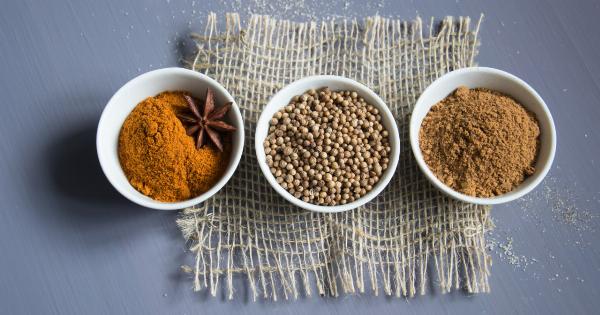Spices have long been used to enhance the flavors of our food. From the fiery heat of chili powder to the aromatic kick of cinnamon, spices add depth and complexity to our meals. However, as the saying goes, too much of a good thing can be bad.
Excessive consumption of spices can lead to a condition called stomatitis, which can cause discomfort and pain in the mouth. In this article, we will explore what stomatitis is, its causes, symptoms, and treatment options.
What is Stomatitis?
Stomatitis is the inflammation of the mucous membranes in the mouth. It can be characterized by redness, swelling, and sores on the lips, tongue, cheeks, and gums.
The condition can be acute or chronic, and its severity can vary from mild discomfort to severe pain. Stomatitis can make eating, speaking, and even brushing teeth a painful experience.
Causes of Stomatitis
While there are several factors that can contribute to the development of stomatitis, excessive consumption of spicy foods is a significant cause.
The capsaicin compound found in chili peppers, for example, can irritate the sensitive tissues in the mouth and lead to inflammation. Other common causes include:.
- Poor oral hygiene
- Ill-fitting dentures or braces
- Viral or bacterial infections
- Allergic reactions
- Chemotherapy or radiation therapy
- Autoimmune disorders
Symptoms of Stomatitis
The symptoms of stomatitis can vary depending on the underlying cause and severity of the condition. Common signs and symptoms may include:.
- Redness and swelling of the mouth
- Presence of sores or ulcers on the lips, tongue, gums, or cheeks
- Pain or discomfort while eating, drinking, or talking
- Difficulty in opening the mouth
- Dry mouth
- An unpleasant taste in the mouth
Treatment Options
When it comes to treating stomatitis, the underlying cause needs to be addressed. In cases where spicy foods are the primary trigger, reducing or avoiding their consumption may provide relief. Other treatment options may include:.
- Good oral hygiene practices, such as regular brushing and flossing
- Using a soft-bristled toothbrush to prevent further irritation
- Topical antiseptic or anesthetic gels to soothe the mouth
- Prescription medications, such as corticosteroids or antihistamines, for severe cases
- Over-the-counter pain relievers to manage discomfort
- Antibiotics or antiviral medications to treat underlying infections
Preventing Stomatitis
Prevention is always better than cure, and the same principle applies to stomatitis. Here are some measures you can take to reduce the risk of developing stomatitis:.
- Maintain good oral hygiene by brushing and flossing regularly
- Avoid consuming excessively spicy or acidic foods
- Quit smoking and limit alcohol consumption, as they can irritate the mouth
- Replace ill-fitting dentures or braces that may cause irritation
- Stay hydrated and drink plenty of water
- Avoid sharing utensils or personal items with individuals who have stomatitis or other oral infections
- Seek prompt treatment for any underlying infections or oral health issues
When to See a Dentist or Doctor
If you experience persistent or worsening symptoms of stomatitis, it is essential to seek medical attention. A dentist or doctor will be able to diagnose the underlying cause of stomatitis and suggest appropriate treatment options.
They may also recommend additional tests or refer you to a specialist if necessary.
Conclusion
While spices can add a delightful burst of flavor to our meals, it is crucial to enjoy them in moderation. Excessive consumption of spicy foods can lead to stomatitis, an uncomfortable condition characterized by mouth inflammation and sores.
By being mindful of our spice intake and practicing good oral hygiene, we can minimize the risk of developing stomatitis and ensure a healthy and pain-free mouth.





























